Earth
Sign up for our newsletter
We summarize the week's scientific breakthroughs every Thursday.
-
 Climate
ClimateYear in Review: Carbon dioxide levels pass milestone
Although scientists are confident about humankind’s role in climate change, they still have a lot to learn about the magnitude and timing of future climate shifts.
By Erin Wayman -
 Environment
EnvironmentProtein fibers trap greenhouse gas
The method could scrub exhaust from cars and power plants.
-
 Environment
EnvironmentStillbirth rates tied to lead in drinking water
Fetal death rates rose in Washington, D.C., in parallel with two recent spikes in drinking water’s lead levels.
-
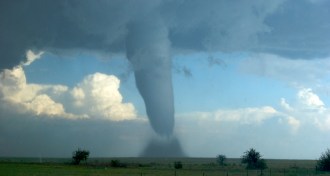 Climate
ClimateTornado intensity climbs in the United States
Larger paths of destruction may be tied to climate change.
By Meghan Rosen -
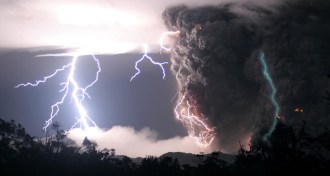 Earth
EarthGreen lightning may be caused by positive charges, or by camera lens
Physicist offers possible explanations for stunning photograph of volcanic eruption.
By Meghan Rosen -
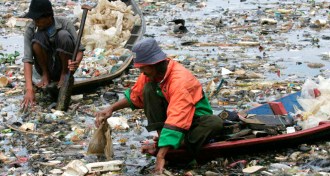 Environment
EnvironmentWorld’s worst polluted
A new report by Green Cross Switzerland and the Blacksmith Institute lists places posing the greatest risk to human health.
-
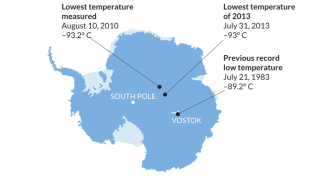 Climate
ClimateColdest place moves from one Antarctic site to another
New record low measured by satellite.
By Meghan Rosen -
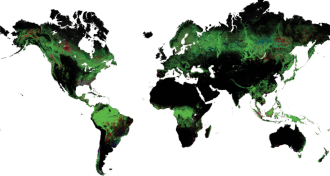 Ecosystems
EcosystemsOnline map tracks forest shifts from space
By layering more than 650,000 satellite images onto a Google map, researchers have created a new tool to track forest cover.
By Meghan Rosen -
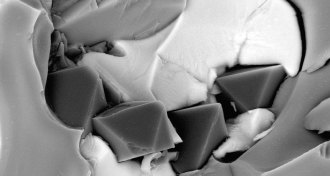 Earth
EarthEarth’s plate boundaries may nurture diamond formation
An experiment mimicking conditions deep in the Earth suggests that some tectonic plate boundaries may make ideal diamond nurseries.
-
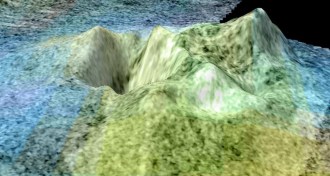 Earth
EarthCryovolcano
An ice volcano that erupts slurries of volatile compounds such as water or methane instead of lava.
By Erin Wayman -
 Climate
ClimateMethane emissions may be far higher than estimated
U.S. fossil fuel and cattle industries may emit far more methane than government estimates indicate.
-
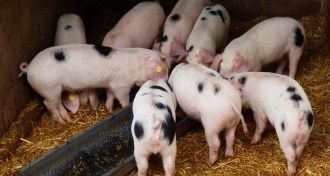 Agriculture
AgricultureProbiotics may protect piglets from E. coli infection
Beneficial bacteria could replace antibiotics in pig feed.
By Beth Mole